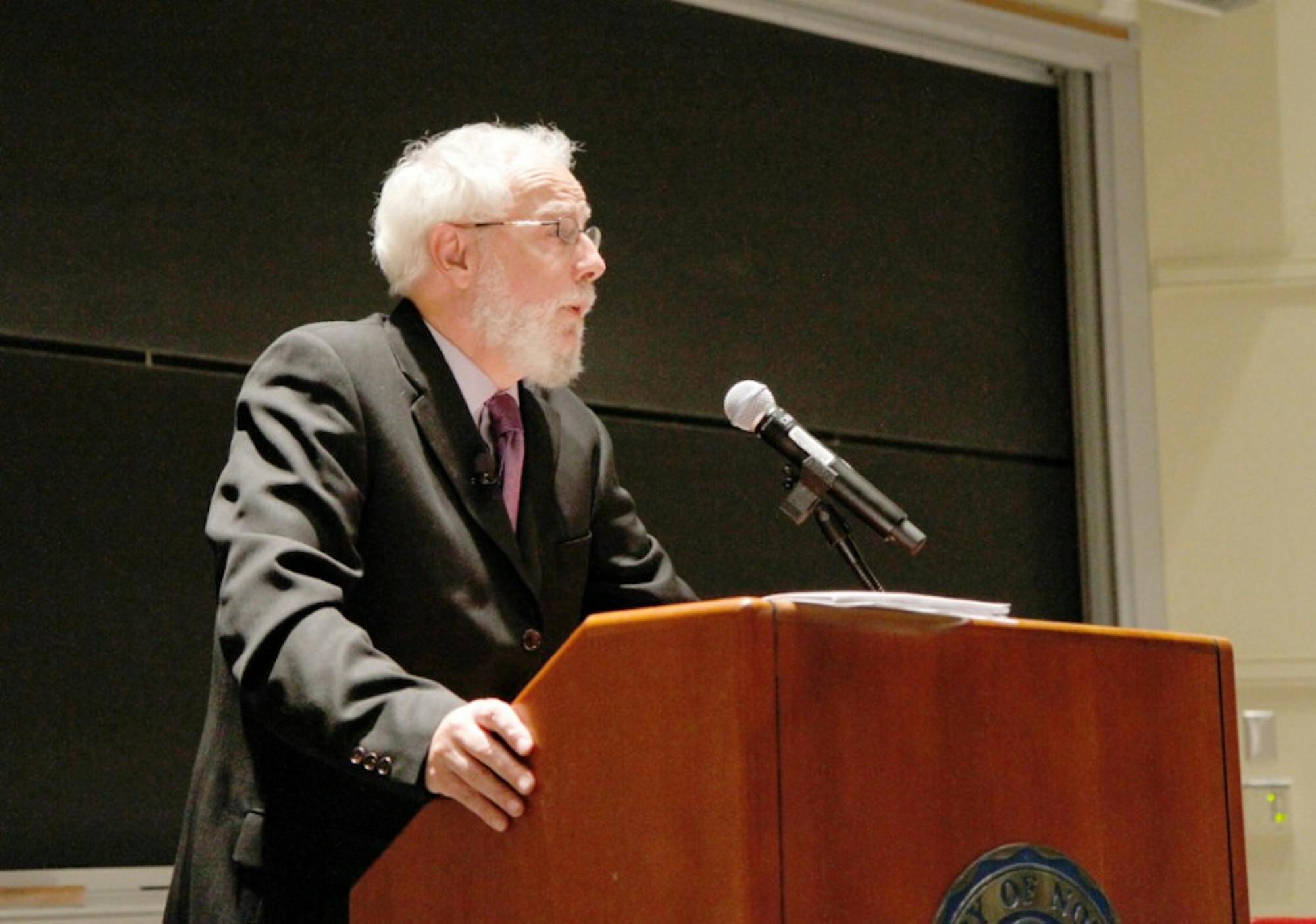The second installment of the Notre Dame Forum "What do Notre Dame graduates need to know?" evaluated the role of theology at Catholic universities Monday, featuring Huisking professor of theology at Notre Dame Cyril O’Regan and chairwoman of Boston College’s theology department Catherine Cornille.
“In a sense, as we think about curriculum review, we’re thinking about also the minds and character of the students who graduate,” Jenkins said. “We want them to be people informed by the Christian tradition — theology, as well as people who can intelligently engage in the conversation between faith and reason.”
O'Regan said Notre Dame emulates the theological education described in Cardinal Deacon John Henry Newman’s reflections.
“Newman’s reflection on the Catholic university especially bears on the inspiration to found the University of Notre Dame,” he said. “Newman and Fr. Sorin knew that the idea of a Catholic university could not be an oxymoron.”
O'Regan said although many believe that theological and secular education cannot coexist, it is not only possible but necessary to include both in a Catholic university education.
“There was a sense that all forces secular put pressure on the whether and how ‘Catholic’ ... and ‘university’ appeared to be in conflict,” he said. “It made the logic that of a zero-sum game – the more of one, the less the other and vice versa. The pressure to pull apart [‘Catholic’] and [‘university’] will intensify and will likely continue to intensify. ... Newman thought that the pressure not only had to be resisted, but could be.”
Cornille said it is also necessary to teach students about other faith traditions.
“I think it’s important for our students to learn how to engage other religious traditions in a constructive way, how to open oneself up to learning from other religious traditions and in turn, reflect constructively on what that means for the Christian faith or for one’s understanding of that particular theological topic,” Cornille said.
Cornille said ultimately, Catholic university students must learn how to engage and approach theology as a spiritual pursuit, rather than a simply factual one.
“I think we have this challenge to teach theology as a spiritual discipline, to expose our students to the spiritual richness and depth of the tradition to the radicalness of theology,” she said. “Most students don’t regard theology as a radical discipline, but once they are exposed to [it] I think that this could really awaken them in new ways to what theology could mean and how it could contribute to their own lives.”













